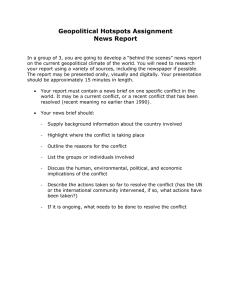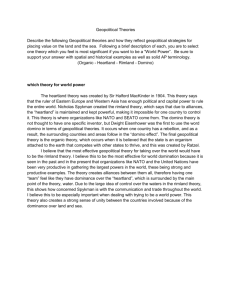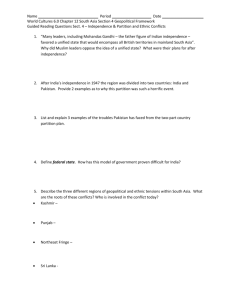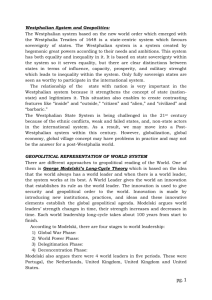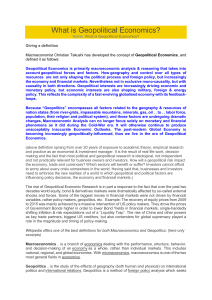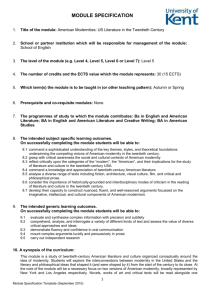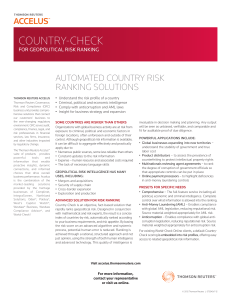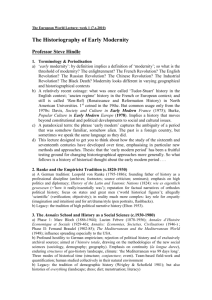Goodbye aid effectiveness, hello development effectiveness?
advertisement
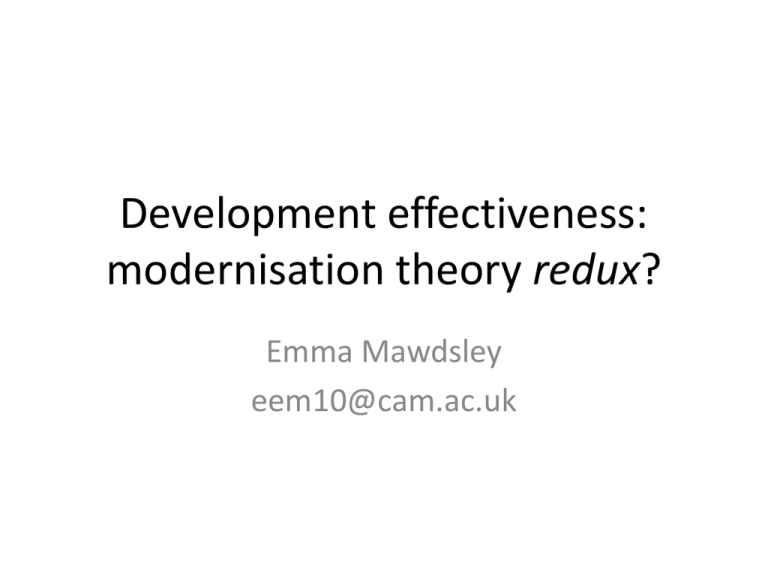
Development effectiveness: modernisation theory redux? Emma Mawdsley eem10@cam.ac.uk Aid effectiveness/new millennial paradigm • Emergence of the aid effectiveness agenda: recipient ownership, donor harmonization, good governance, focus on ‘soft-wiring’ of development • Post-modern sensibilities, universalism tempered by cultural relativism, ambivalence about the benefits of industrial modernity • Mainstreaming of participatory approaches, gender, sustainable development • Development norm centred on poverty reduction • Commitment to a series of international development targets, most notably the Millennium Development Goals • Bilateral norms and institutions dominated by OECD-DAC, albeit in a ‘partnership’ framework • Relationship between development and ‘security’ rearticulated and deepened; strong focus on failing/fragile/conflict states • Geopolitical context: war on terror, growth of the ‘rising powers’, rising global inequality ‘Development effectiveness’ • Rapid shift of discourse in the run-up to Busan • Aid effectiveness displaced by ‘development effectiveness’: economic growth, focus on productivity and capacity, stronger role for the private sector, wider concept of development financing, a post-aid world – CSOs pushing the idea of DE as a rights-based agenda, but a minority voice • Theories of development: Asian (generational, self-help, limited social, civil and political rights), South-South (non-interference, horizontal) • End of western domination of global development governance; emerging regime uncertain, but more complex, voluntary • Geopolitical context: the global financial crisis, submerging powers, rapidly shifting and fractured geographies of wealth and power 1950s/1960s modernisation theory • Deeply rooted in US domestic politics and anxieties (Gilman 2007) • Intellectual lineages in the Enlightenment (e.g. Comte, Condorcet etc), 19C economic-political theory (e.g. Hegel, Marx) and early 20C theories of societal change (e.g. Parsons, Durkheim) • Holistic meta-narrative – the interplay of psychological, social, political and economic transformations • Eurocentric, arrogant, culturally parochial and oblivious: from biological to cultural account of ‘backwardness’ • Optimistic, trust in (‘western’) science, technology and know-how • Narrative of national progress • Broadly, a period of global growth and declining inequality. • Geopolitical context: Cold War, decolonization, consolidation of a deeply uneven post-1945 international order; ‘developmental states’: capitalist, socialist, democratic, authoritarian; import substitution industrialization, trades unions Similarities • The (eventual) promise of industrial modernity, material growth, wealth • Optimistic accounts of the promise of (Southernled)science and technology – far less ambivalence about industrial modernity • Limited concern environment or subaltern peoples or cultures • Hubris? Assertions of national superiority? • Linear model of stages of (economic – but not cultural) development? Differences • Biological and then cultural explanations of ‘backwardness’ replaced by geopolitical narrative: colonialism and neo-imperialism • Dominated by economic element: notions of psychological, social and political transformation far less prominent • Developmental states (liberal, socialist, authoritarian) replaced by transnational capitalist elites and a more prominent role for private sector, public-private partnerships • Context of financial and trade deregulation; massive decline in trades union power; labour informality, SEZs • Far wider set of actors, pluralizing international governance regimes, declining USA/western hard and soft power • Legitimacy of Enlightenment-based universal human rights increasingly strongly resisted • Different positioning of different sectors: resources/primary, manufacturing, services
